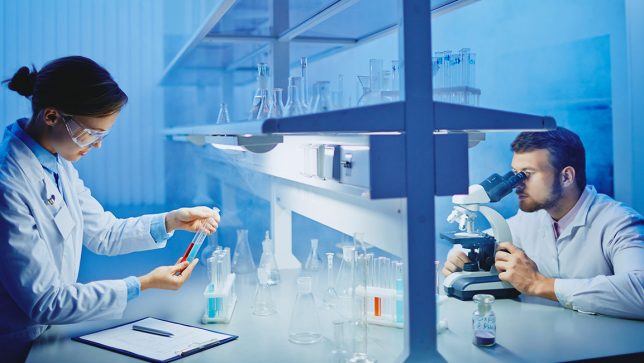Fraud in a German laboratory has cast additional doubts on the 2017 re-approval of glyphosate and on the entire EU pesticide safety evaluation procedure, Pesticide Action Network Europe reported on Tuesday.

A new study has revealed Laboratory of Pharmacology and Toxicology (LPT) Hamburg was found to commit fraud in a series of regulatory tests, several of which had been carried out as part of the glyphosate re-approval process in 2017. Even though “Good Laboratory Practice” (GLP) certification is required for such studies, at least 14% of such glyphosate regulatory studies came from LPT Hamburg. The laboratory was caught manipulating GLP toxicity studies by replacing dead animals with living ones, changing tumour data to “inflammations” and generally distorting the data to please its clients. It is highly concerning that GLP studies are still considered the golden scientific standard by regulatory authorities who seem to believe that cheating under GLP is impossible.
PAN Europe has asked the European Commission to discard the studies carried out by LPT laboratory from the glyphosate dossier currently undergoing re-evaluation at EU-level, and from any other dossier.
Based on testimonies from LPT’s employees and evidence of fraud carried out in LPT Hamburg, a major GLP laboratory in Germany, the survey carried out by the organisations PAN Germany, Global2000 and Corporate Europe Observatory reveals that at least 14% of the new regulatory studies submitted for the re-approval of glyphosate in 2017 were conducted by LPT Hamburg. The number could be higher, as this information in the dossiers often remains undisclosed to the public. The laboratory is currently facing criminal charges, and although it is impossible to know whether the fraud occurred only in the glyphosate-related studies, any tests delivered by LPT Hamburg must be considered unreliable and thus discarded from the re-assessment procedure.
Good Laboratory Practice is a mandatory standard in regulatory studies obliging laboratories to write down a series of endpoints in a specific format. This system allows for a higher level of standardisation of the reporting and easier control by regulatory authorities.
Glyphosate Box
Glyphosate Residue Free Certification for Food Brands – Click Here
Test Your Food and Water at Home for Glyphosate – Click Here
Test Your Hair for Glyphosate and other Pesticides – Click Here to Find Out Your Long-Term Exposure
Angeliki Lyssimachou, environmental toxicologist at PAN Europe, said: “The vast majority of studies leading to the approval of a pesticide are carried out by the pesticide industry itself, either directly or via contract laboratories such as LPT Hamburg. We have criticized this conflict of interest for many years. Our 140+ NGO coalition “Citizens for Science in Pesticide Regulation” regularly calls on the Commission to quit this scandalous process: tests must be carried out by independent laboratories under public scrutiny, while the financing of studies should be supported by industry”.
Hans Muilerman, chemical policy officer at PAN Europe, added: “For years, European Member States, EFSA and the Commission have been defending the belief that an industry-funded GLP study is more reliable than a non-industry, non-GLP study. Thousands of relevant independent pesticide studies showing harm to humans or nature have been discarded by regulators because they are not GLP, under the Klimisch scoring principle” .
“By including non-GLP studies, the International Agency for Research on Cancer (IARC) has classified glyphosate as a probable carcinogen. It is by giving so little weight to all non-GLP studies that the European Commission and Member States came to a different conclusion. It is time for citizens’ health to take precedence over companies’ profit!” Lyssimachou concluded.



















